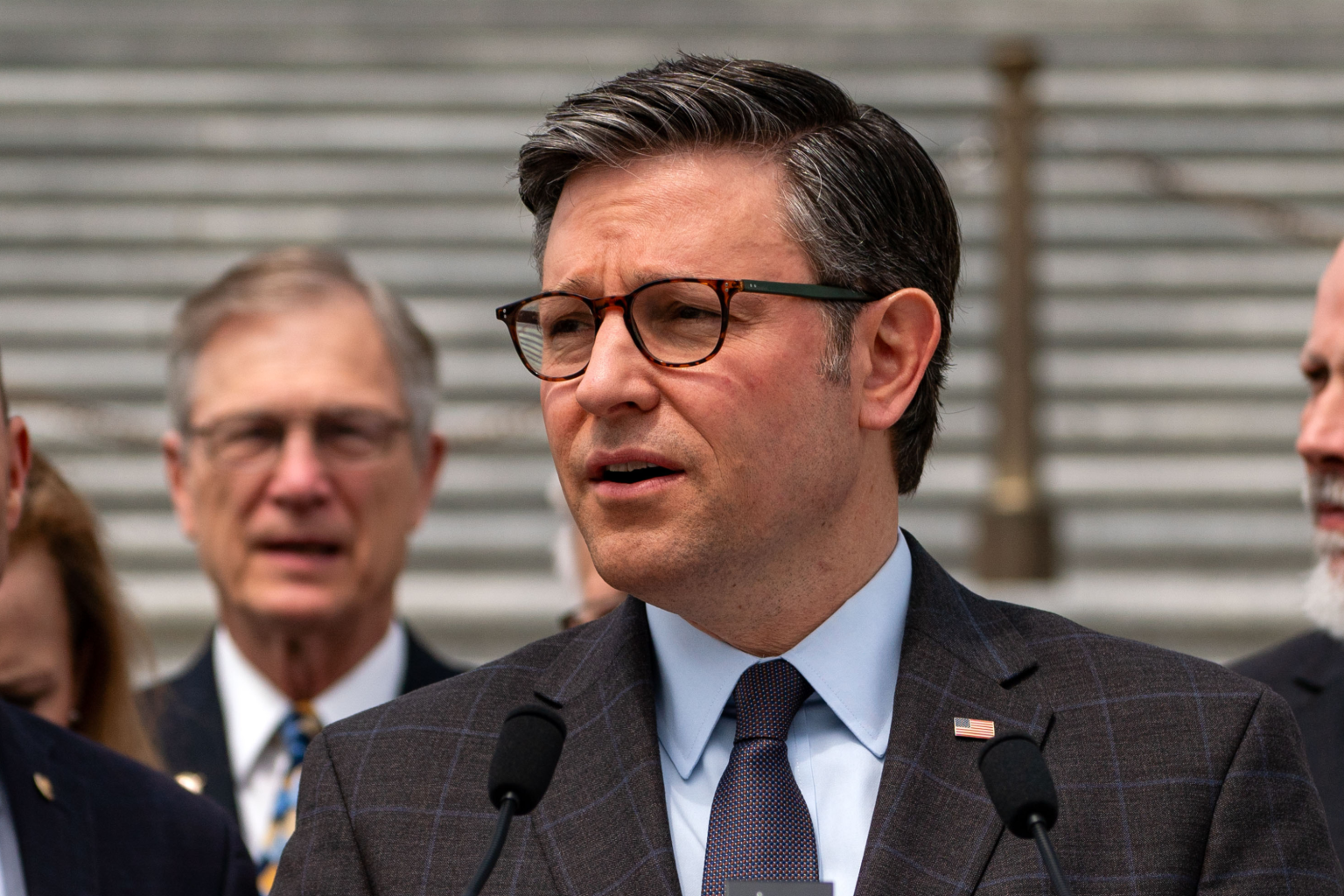Republican House Speaker Mike Johnson introduced a bill aimed at increasing election integrity by cracking down on non-U.S. citizens voting in federal elections. The legislation proposes amendments to the National Voter Registration Act to require individuals to provide proof of citizenship before registering to vote. The bill was first announced after a meeting with former President Donald Trump and requires state election officials to implement the new registration requirements within 10 days of enactment.
Johnson was joined by conservative lawmakers Chip Roy and Mike Lee as he announced the bill, criticizing President Joe Biden’s immigration policies and accusing the White House of allowing “millions and millions of illegal aliens” into the country. Johnson reiterated concerns about voter fraud and illegal aliens potentially voting in the upcoming presidential election. Despite claims of voter fraud, studies have shown that instances of noncitizens voting in federal elections are extremely rare and have minimal impact on the final outcome.
Research by the Brennan Center for Justice and state election officials in North Carolina and Georgia found that a very small number of noncitizens attempted to vote in federal elections, with the vast majority being caught during the registration process. Johnson argued that while it may be difficult to prove definitively, there is a belief that illegal immigrants are voting in federal elections. Trump’s campaign spokesperson expressed support for legislative action to prevent noncitizens from voting, aligning with Johnson’s efforts to increase election security.
The bill proposed by Johnson has reignited the debate over election integrity and the role of noncitizens in federal elections. Democrats, including House Minority Leader Hakeem Jeffries, have not yet commented on the bill. The legislation, if passed, would add additional requirements for individuals registering to vote in federal elections, potentially impacting voter participation among certain groups. The bill reflects ongoing concerns about voter fraud and the need to protect the integrity of U.S. elections.
Critics of the bill argue that it is unnecessary and could potentially disenfranchise eligible voters, particularly those in marginalized communities who may face barriers to obtaining documentation of citizenship. They point to studies that have shown the rarity of noncitizens voting in federal elections and question the need for additional restrictions on voter registration. The debate over election integrity continues to be a contentious issue in American politics, with lawmakers on both sides of the aisle offering differing perspectives on how to best ensure fair and secure elections.
As the bill moves through Congress, its impact on voter registration and participation will be closely monitored. For now, Johnson’s proposed legislation has sparked debate and drawn attention to the issue of noncitizens voting in federal elections. The bill aligns with conservative efforts to address concerns about voter fraud and strengthen election security, but its potential implications for voter access and participation remain a topic of discussion among lawmakers and advocates on both sides of the political spectrum.


